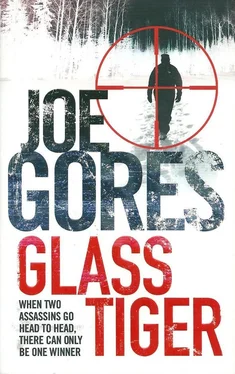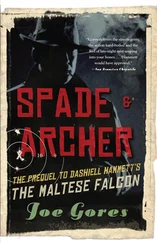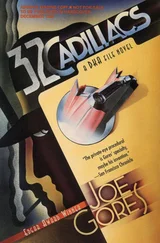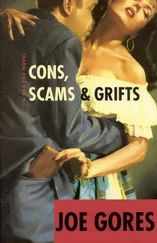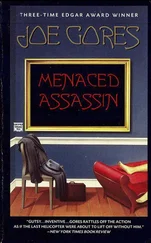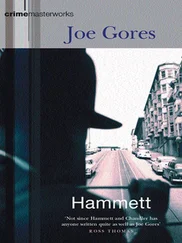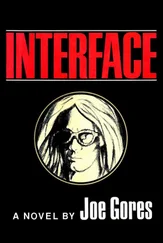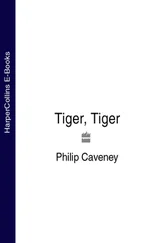Silent as ghosts, the two men moved downriver and upwind. Stopped. Ten yards ahead, facing away from them, were the shifta, three scruffy men in kepis and cast-off military uniforms with sandals made of truck tires.
Thirty yards further on in a small clearing were the two old bull elephants. The larger was thirteen feet at the shoulder and weighed seven tons. Thorne had named him Tantor after Tarzan’s elephant friend. Tantor had just curled his sinuous trunk around a bunch of browse like a cook’s hand around a pound of uncooked spaghetti, was shoving it into his curiously delicate mouth and chewing, rumbling with pleasure. His massive forehead was braced against a doum palm to temporarily ease the weight of ten-foot tusks that almost touched the ground.
The younger bull, Dumbo, with only slightly smaller ivory, was shielded by Tantor’s bulk. The shifta were waiting until they could kill both animals with one sustained magazine-emptying burst of rifle fire. If only wounded, they would disappear into the saltbrush in seconds, taking their ivory with them.
A drab little bulbul, unconcerned with the drama below, sang its beguiling song in the foliage overhead. Thorne slid to his right, knowing Morengaru would go left. No twig crackled underfoot, no branch rustled.
The man in front of Thorne raised his AK47 to shoot Tantor in the spine. Thorne tapped him on the shoulder.
‘Don’t do that,’ he said in English.
The Somali whirled, bringing around his automatic weapon. Thorne had been thinking capture, but everything became liquid quicksilver as training and temperament overcame resolve. His left hand whipped his knife across the man’s jugular with a powerful backhand slash. Bright arterial blood gushed.
The one in the center got off an errant burst into the sky as Morengaru’s 12-gauge dissolved the top of his head in a spray of brain and bone. He fell, a sack of bloody flour.
The third tried to fire from the hip, but Thorne’s Beretta slammed four glazer rounds into his chest in a silver-dollar cluster. His gaunt, aristocratic face went gray with death.
Five seconds.
The elephants had whirled to face them, huge as houses, ears flaring, trumpeting. Then they were gone with that lovely gliding silent stride that always took Thorne’s breath away.
On his thirtieth birthday, Thorne was killing men in Panama as a sometime assassin for a CIA front. On his thirty-fifth, he became a Tsavo camp guard because belatedly he had sworn to his dead Alison’s memory that he would never again kill another human being.
Today, on his fortieth birthday, he had killed two of them. He had betrayed Alison’s memory because he had been betrayed by his New Year’s Eve feeling that a worthy stalk of worthy prey would appear. No killing, just the stalk. But two men were dead by his hand. Killing them, he had again felt that wondrous cleansing adrenaline rush. But also nausea.
The bulbul resumed its beguiling song as Thorne threw up into the saltbush.
They left the shifta’s lorry a mile downwind so the stink of death would not accompany them across the shallow ford to the camp. Sikuzuri, after all, was strictly for the diamonds-and-Ferrari set. You paid big money to sit on your veranda facing the Galana and listen to real lions roar and real elephants trumpet with no bars between you and them. And, because of Thorne and Morengaru, with no real danger to yourself.
A pale goshawk chanted at them from a phone pole. A black-shouldered kite kweee-e-e-ed at them from the wire. Thorne sometimes made photo ops for the tourists by putting a cube of raw meat on his palm so a kite could swoop down and snatch it.
Eight black-headed sacred ibises pecked with curved beaks in the mud beside the ford. To the ancient Egyptians these birds symbolized Thoth, who totted up your good and evil deeds in the Book of the Dead. Today Thorne, betraying himself and Alison’s memory, had killed two men to save two elephants and avenge a dead rhino. Where did that fall in Thoth’s scales of justice?
Morengaru went off to clean his shotgun, Thorne went into the office. Steven Livingston, manager of Sikuzuri for three years, looked up from his computer. He was a ruddy-faced Brit with round glasses and a bristling ginger mustache and a degree in hotel management. Inevitably, he was called Stanley Livingston instead of Steve. He held out an envelope to Thorne.
‘Eleanor Pierpont left this for you before they went off, Brendan. It will be a bloody nice tip, I daresay.’
Thorne laid the envelope unopened on the desk.
‘Give it to Morengaru for his 401K.’
He dialled the Kenyan Wildlife Service at Voi to get Jehovah Muthengi, a Kamba under whom he had served as a tracker and guide for two years before moving on to Sikuzuri. At odd times they had drunk a good bit of Tusker beer together.
‘Jehovah, we ran across three shifta this morning, trying to poach those bull elephants. We stopped ’em, but Bwana Kifa—, but that old lone bull rhino’s horns are in the back of their lorry a mile below camp.’ He listened, frowning at Muthengi’s words, then shrugged. ‘Sure, call Nairobi. I suppose the Kenya National Police will want to see what’s left of ’em in situ.’
When he hung up, Stanley Livingston was drawing up his well-fed body and staring at him with goggle-eyed outrage.
‘Now see here, Thorne, this bloody well isn’t on, killing Somalis. These high-handed tactics—’
Thorne shut the screen door behind him with exaggerated care, went down to the modest banda he had built himself in the thorn-fence-enclosed boma where the workers lived. He cleaned the Beretta with a toothbrush and Hoppe’s No. 9, ran cleaning disks down the barrel to clear away the powder residue. Sitting in his canvas safari chair outside his hut, he read a book left behind by a guest, Dante in Love , Harriet Rubin’s contemplation on the writing of The Divine Comedy . Two men dead by his hand. In which ring of the Inferno would Dante place him for that?
Three hours later a cloud of red dust chased the Wildlife Service Land Rover into camp. Muthengi was behind the wheel, Sergeant Hassim and Corporal Abdulla were with him. Livingston had the wind up, was jittering around as if trying to dodge an angry wasp. Looking on, fascinated, were guests waiting to go on photo safari when a lowering sun made the animals active.
Thorne advanced with a smile. ‘Jehovah.’
‘Mr. Thorne, sah.’ Whoops. No Brendan. Way too formal.
Muthengi was a short, square, very black man, so black the inside of his mouth was purple. He wore a safari jacket, khaki shorts, knee socks, desert boots, and a ripoff U.S. Army .45 in a hip-holster like a Western gunslinger. He couldn’t hit anything with it, but it had seemed an innocent affectation. Until today.
The rangers were Cushite Borani tribesmen from the Northern Frontier District where it bordered Ethiopia. They were over six feet tall, wiry, with beautiful, disdainful faces. They wore the green camise and beret of the Kenyan Wildlife Service.
Thorne greeted them cheerily in Swahili; they answered with distant nods. He tensed up even more. Livingston’s jitters. Muthengi’s formal greeting. The rangers’ embarrassment. Damn. He hadn’t even been to the capitol in six months, but any non-citizen working in Kenya for local pay was on shaky ground.
‘What did Nairobi have to say about my little shauri ?’
My little affair. Responding, Muthengi did not meet his eyes. ‘They said you must be, ah, placed under arrest, sah.’
In an obviously rehearsed move, Hassan and Abdulla brought up their rifles to point at Thorne’s chest. He stood very still. Rangers were notoriously nervy behind the gun, and these were serious weapons, G3 semiautomatics in 7.62mm NATO caliber.
Читать дальше
